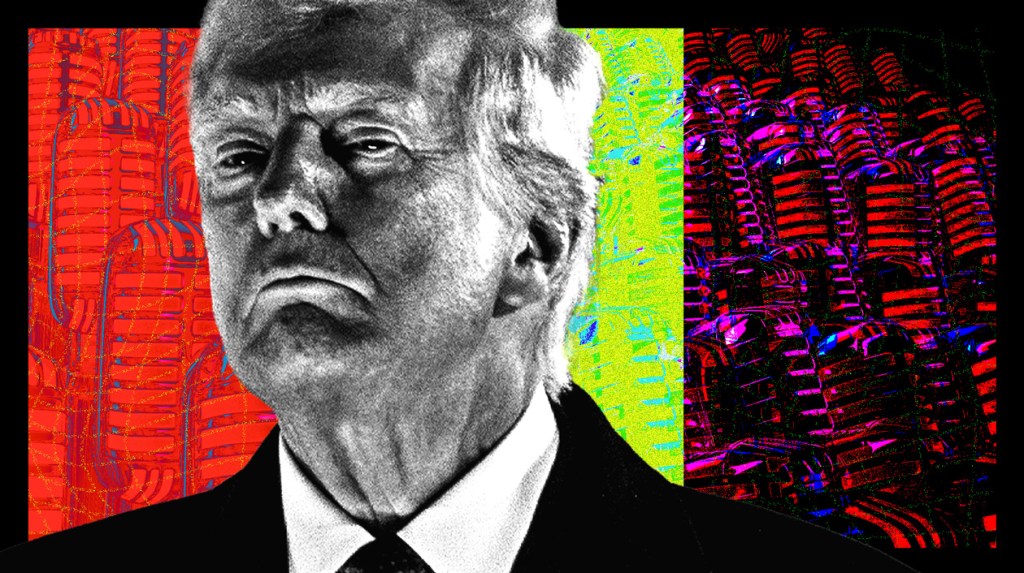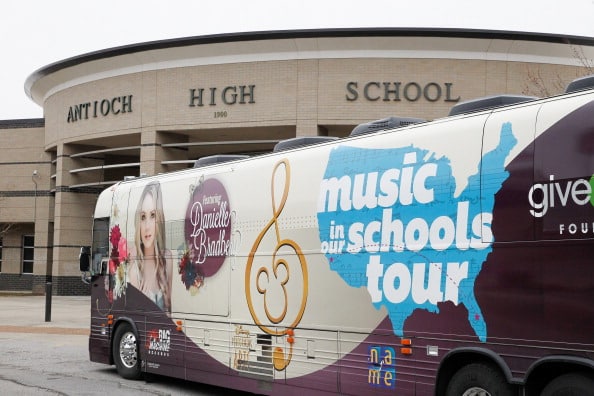After Trump’s Inauguration, Is Politics Pulling Pop Music To the Right?
Written by djfrosty on January 23, 2025

From a pop music perspective, the Donald Trump inauguration seemed normal enough. After Trump’s inaugural address, Carrie Underwood sang “America the Beautiful” — a cappella, in the wake of an audio malfunction. Jason Aldean and Rascal Flatts performed at the inaugural ball; other events featured Nelly, Gavin DeGraw and the Village People; Snoop Dogg even played the Crypto Ball. It was a far cry from eight years ago, when Trump’s first inaugural featured a comparatively anemic lineup of Toby Keith, Jennifer Holliday and 3 Doors Down. Back then, Billboard reported that the 2017 event “has been hobbled by the perception that major entertainment industry names have refused invites to perform at the festivities.”
The reaction of many artists and music executives to Trump’s first term was to hope there wouldn’t be a second. Artists spoke out against him, and those who supported him took their share of criticism for it. (The exception is Lee Greenwood, who has become so associated with Trump that it’s almost hard to remember a time when he wasn’t.) Oddly, the president for whom the music business had so much contempt probably helped it more than President Barack Obama, who championed technology companies at the expense of rights holders, while Trump signed the Music Modernization Act.
Trending on Billboard
That was then.
Now — well, now things are different. The artists who supported Kamala Harris found out how much power they have — less than they thought. (Remember all that talk about the Swiftie vote?) Mark Zuckerberg and Jeff Bezos, who have real power — they don’t just participate in the conversation, they steer it — had VIP seats at the inauguration. Then there’s Elon Musk, who has used the influence of X in ways that might help Elon Musk (who, when he’s not hating the government, does plenty of business with it). If such powerful CEOs stand behind Trump, who are artists to stay home?
Maybe that’s why artists who seem to hate Trump turned around. Snoop once told DJ Suss that Trump’s supporters were “racist” and starred in a video in which he pulled a fake gun on the character “Ronald Klump.” (The Crypto event at which Snoop performed was independent but Trump embraced the technology by issuing a meme coin.) Village People frontman Victor Willis, who in 2020 asked Trump to stop playing “Y.M.C.A.” and “Macho Man” at his rallies, said on Facebook that the group “accepted an invitation from President Elect Trump’s campaign to participate in inaugural activities.”
These artists aren’t known for their politics — at this point, Snoop’s brand is mostly about being a brand, and Willis seems to relish the exposure Trump gives his songs. (In the Facebook post that announced the Village People performance, Willis also threatened to sue any news organizations that refer to “Y.M.C.A.” as a gay anthem, “because it is damaging to the song.” I will simply note that it originally appeared on the Village People album Cruisin’.) But their actions make other artists less likely to shy away from the new administration. Because the truth is that millions of Americans voted for Trump and those who object to his politics — including myself, incidentally — won’t change their listening habits over anything like this.
Over the past decade or so, “cancel culture” has put pressure on creators and companies to change by trying to ensure that bad behavior has consequences. The problem is that the actual consequences rarely materialize — of all the artists who transgressed and faced online criticism, only R. Kelly saw his popularity plummet, and only after years of accusations, plus multiple convictions. After Morgan Wallen was seen on video using a racial slur in 2021, his radio play plummeted, he was dropped by his booking agent, and his recording contract was “suspended” — but his career recovered within a year. Kanye West still books big venues.
The idea of cancel culture was that the creative sector could pull politics to the left — that if artists and companies pursued more progressive policies, government would follow. Instead, the opposite is happening: Politics is pulling pop culture to the right. Some of this isn’t viscerally ugly — the crypto event that Snoop played isn’t racist or sexist. But unregulated currencies are get-rich-quick schemes backed by arch-libertarian politics that give algorithms more power than democracy.
During Trump’s first term, there was a great deal of #resistance, and the Democrats seemed energized. This isn’t who we are, we told ourselves — it’s an aberration. And for four years starting in 2020, it seemed like that was the case. Now the Democrats are in disarray, united only by their opposition to Trump as a leader, when in fact a new poll showed that many of Trump’s policies are more popular than he is. This is who we are, at least at the moment. Many Trump voters want to see acts they like play inaugural events, and there’s going to be a big market for new artists in the same mold. (I love the Linda Lindas, but there’s more money in signing the next Jason Aldean.)
For the last decade or so, companies that took stands on social issues and artists who spoke up for left-leaning politics were accused of “virtue signaling” — doing the right thing to be seen doing it. At the time, it was so easy to do “the right thing” that it was almost harder not to. No longer; now speaking up for liberal values is going to come at a real cost. It will be interesting to see how many creators and companies are going to be willing to pay it.

 State Champ Radio
State Champ Radio 





